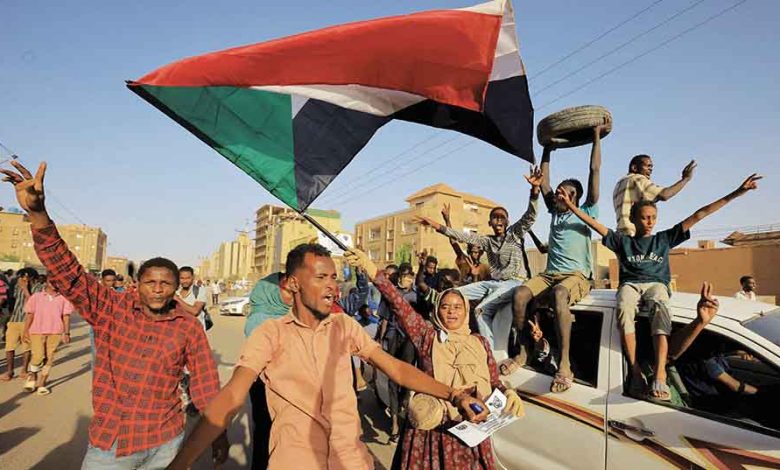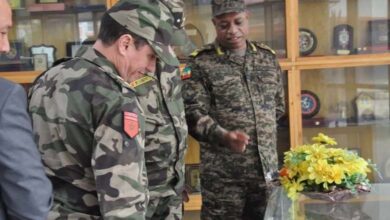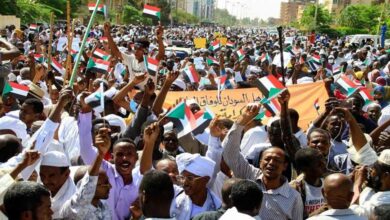After the crisis escalated – The United Nations sends a special envoy to Sudan

“The UN announced it was sending an envoy to Sudan as the country entered its third week of the conflict, with UN Secretary-General António Guterres deciding after the paramilitary Rapid Support Forces (RSF) and the Sudanese army consistently violated a 72-hour ceasefire.”
Humanitarian disaster
The death toll continued to rise, with reports of hospitals and blood banks being looted and ambulances being prevented from reaching their destinations, The National reported.
UN spokesman Stephane Dujarric said “The scale and speed of what is happening in Sudan is unprecedented… We are very concerned,” while UN Emergency Relief Coordinator Martin Griffiths, who will act as envoy, separately said the humanitarian situation in Sudan was at breaking point.
“I am on my way to the region to explore how we can provide immediate relief to millions of people whose lives were upended overnight,” said Griffiths, who was the UN’s envoy to Yemen until 2021.
However, he said the rampant looting of humanitarian offices and warehouses has exhausted most UN supplies. “We are exploring urgent ways to bring in and distribute additional supplies,” Griffiths said, adding that the “obvious solution” was to stop the fighting.
“The World Food Program (WFP) said on Monday it would immediately lift a suspension of its operations in Sudan, where the WFP suspended operations after three team members were killed on the first day of fighting.”
“WFP is resuming programs rapidly to deliver life-saving assistance that many so desperately need right now,” Executive Director Cindy McCain wrote on Twitter.
“More than 500 people have been killed and tens of thousands have been forced to leave their homes for safer locations at home or abroad since the conflict began on 15 April; the UN says the fighting has left 75,000 displaced in Sudan, 20,000 have fled to neighboring Chad, 4,000 to South Sudan and 3,500 to Ethiopia.”
“The UN’s refugee agency, UNHCR, told AFP that nearly 6,000 people, mostly women, have sought refuge in the neighboring Central African Republic in the past two weeks.”
Families’ struggle
Griffiths said families were struggling to access water, food, fuel, and other goods, while others were unable to leave some of the worst-affected areas due to the high cost of transportation, noting that urgent healthcare was “severely restricted, increasing the risk of preventable death.”
Five containers of intravenous fluids and other emergency supplies docked in Port Sudan were awaiting clearance from the authorities.












